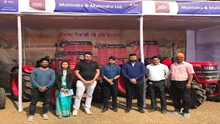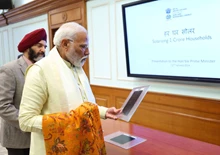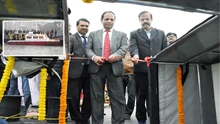
The Pharmacopoeia Commission for Indian Medicine and Homoeopathy (PCIM&H), Ministry of Ayush, in collaboration with WHO South East Asia Region (WHO-SEARO), has taken significant steps to improve laboratory capacity for quality control of traditional/herbal products in the region.
Pramod Kumar Pathak, Special Secretary, Ministry of Ayush, inaugurated a three-day training programme in the presence of Dr. Kim Sungchol, Regional Advisor-Traditional Medicine, WHO South-East Asia regional office, Dr. Raman Mohan Singh, Director, PCIM&H, and other dignitaries. This is the first time such an exercise has taken place in the country.
This training programme has 23 participants from 9 countries (Bhutan, Indonesia, India, Sri Lanka, Thailand, Nepal, Maldives, Timor Leste, and Bangladesh). The training's goal is to impart knowledge. The training's goal is to teach laboratory-based techniques and methods for maintaining the quality of traditional/herbal products.
Pramod Kumar Pathak, Special Secretary, Ministry of Ayush, stated on the occasion, "According to the Research and Information System Centre for Developing Countries report, the industry is projected to reach US$ 23.3 billion in 2022. Due to adulteration, the quality of herbal material is becoming increasingly concerning as the market grows. The consistency in Lab-based Quality Control will allow us to evaluate the quality of herbals, which is frequently influenced by physical, chemical, and geographical factors."
"WHO-SEARO has successfully organised regional workshops and training for other countries," said Dr. Kim Sungchol, Regional Advisor-Traditional Medicine, WHO South-East Asia regional office. One of the key recommendations that member countries made during these regional workshops was to ensure regulatory capacity, which is why we are organising this first training session in collaboration with PCIM&H, Ministry of Ayush."
Quality control measures include raw herbal material standards and best practises (including agricultural, cultivation, collection, storage, manufacturing, laboratory, and clinical, etc.). To ensure safety and efficacy, specific and uniform licencing schemes for manufacturing, import, export, and marketing should be implemented.
The expanding market makes it difficult to maintain the proper quality, efficacy, and effectiveness of herbal drugs. This requires a network of laboratory capacity for quality control of traditional/herbal products to be strengthened.
This programme will provide hands-on training in laboratory methods such as pharmacognosy, microscopy in pharmacognosy, phytochemistry, microbiology, and other advanced instruments/technologies such as High-Performance Thin Layer Chromatography (HPTLC), Gas Chromatography, and others for quality control of traditional/herbal products.











